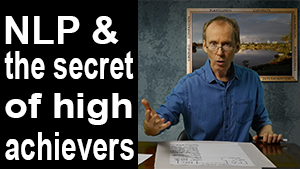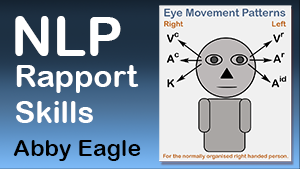
You have landed on this page because you want to be healthy, you want your children to be healthy and you want your grandchildren to be healthy. What is the best diet for me? How to stop drinking alcohol and quit bing eating. Phone 07 5562 5718 or send an email to book a free 20 minute telephone or Skype session. NLP Hypnotherapy Gold Coast. Online skype sessions.
What mindset do you need to cultivate to bring about good health for your family for the next three generations?

(Abby Eagle) My reason for writing this article (15/07/2013) is not to give you information on diet, nutrition, supplements and health. I am not going to give you recipes. You can get that elsewhere on the Internet. What I hope to do is to provoke, challenge, inspire and motivate you to improve your health and the health of your friends, family and the community in which you live.
So how am I going to do that?
By asking lots of questions, questions that invite you to think about health in a new way. Questions that help you develop a sense of curiosity, a sense of fascination such that you learn to access and mobilise your inner resources towards achieving your desired outcomes.
The first question is, "Why do you eat the way that you do?" Ask this question of your friends and you will get some interesting answers - even from 'health conscious' people, for example.
"Because it looks good. Because it tastes good. Because I feel like it. Because I deserve a treat. Because it's easy." Only a few people answer, "Because it is a good source of nutrition. Because food is meant to be fuel for the body."
When Dr Weston A. Price asked people from traditional societies why they went to such great efforts to find quality food for their families he always got the same answer, "Because we want to bring up strong healthy children."
The most important study ever done on nutrition was carried out by a Dentist.
Dr Weston A. Price was a Dentist who travelled the world in the 1930’s to study isolated groups of people living on a traditional diet and compare their health to those people of the same racial stock living on the foods of commerce. What he discovered was compelling. Those people living on a traditional diet, no matter where they lived in the world, all were in good physical health. There was less than 1% tooth decay, no signs of degenerative diseases like cancer, diabetes and heart disease. The women had no need of a doctor in child birth and all the children looked much like their parents and their cousins. Which is very different to what we find today where one child may be tall and skinny and a sibling could be short and fat.
When he asked these traditional people why they went to such great efforts to source and prepare food for their families they all gave the same reply. “Because we want to bring up strong healthy children.” Contrast this with the current situation in the West where a woman may book in for a caesarean section on a Friday so that she can be back at work on Monday morning. Where food choices are a matter of taste and convenience. And what is the consequence of this fast food society? A massive increase in a host of degenerative diseases like cancer, heart disease, diabetes and auto immune diseases.
Dr Price titled his book, Nutrition and Physical Degeneration. Because what people call good or bad genetics is in actual fact the consequence of good or bad prenatal nutrition. That is, if your grandparents ate a traditional diet, if your parents ate a traditional diet and if you were brought up on a traditional diet then you will most likely be good looking and have a strong and healthy constitution. But if your parents and grandparents were brought up on junk food then your looks, health, constitution and mental health may be otherwise.
“Because we want to bring up strong healthy children.” This is the value statement, that motivates me to encourage other people to take care with their food choices. Traditional groups studied by Dr Price were proactive. That is they did not wait until they got sick to think about changing their diet. The parents fed their children on the best food they could possibly find such that when the children grew into a young adult they had a body that would allow them to pursue whatever career or recreational activities they desired. Traditional groups knew that health food choices were essential to a long, happy life.
“Because we want to bring up strong healthy children.” This statement motivates me to help bring about change in the world. When people look good and feel good in their body then they will naturally have a stronger sense of self worth which must translate towards more happiness and harmony in the community.
What is your value statement in respect of health and nutrition that motivates you towards action? (Post your comment at the end of this article.)
Where can we find examples of people living on a traditional diet today?
On one of my trips to Malaysia in 2012 I noticed how well proportioned the people were compared to the people back home in Australia. Whether the Malay was five or six feet tall they all had the same proportions. In addition, husbands and wives were of the same height and build; their faces were well proportioned with beautiful bone structure, a broad smile and a perfect set of teeth.
Contrast this with people on the Gold Coast of Australia. I have observed groups of teenagers, all much the same age, with a huge variation in size and shape. Some tall and skinny, others short and fat. In addition, children don't look like their siblings or their parents. Why? Because of poor attention to nutrition.
So, why is Malaysia important to us?
Because Malaysia is a multi-cultural society. The main ethnic groups are the native Malays as well as large populations of Chinese and Indians, with a mix of people from elsewhere in Asia and the Middle East. On visiting the country it is clear that these groups retain their religions, customs, way of life and their traditional diet.
Damansara Utama (Uptown), the commercial hub of Petaling Jaya just West of Kualur Lumpur offers a diverse range of places to eat. On visiting the local restaurants, cafes, food stalls and markets you will find examples of traditional diet. Typically the restaurant staff have been raised on the same food that they serve to their customers. In addition a large proportion of the customers in the restaurant will be of the same ethnic group. So you get to visit a restaurant, read the menu, ask questions of the staff, in some cases see how the food is prepared, and observe the facial structure and build of those who have lived on that diet for many generations. From this you can get an idea of the long term effect of that diet.
One day I caught a train to the end of the line east of Kualur Lumpur, just to see what was there. When I got off the train I saw about a dozen Muslim women, dressed in traditional black dress. They were all facing away from me so I had a few moments to take a close look. They were all about five foot six inches tall and they were all of much the same proportions with only their height differing by an inch or two. When a few of them turned around they all had beautiful symetrical faces with a great set of teeth.
But not everyone I saw in Malaysia showed evidence of good nutrition. A lot of people were small because of a low calorie diet yet were well proportioned. Others were quite skinny, some had a narrowing of the jaw with buckling of the teeth. The Chinese on average seemed to be heavier than most of the Malays but had a narrower mouth, and more rounded cheeks. But whereas in Australia (2013) more than half of the population are overweight, in Malaysia I only saw a few people who were overweight, and I think most of them were of Chinese origin.
Predictably the American fast food franchises have made inroads into Malaysia. At a major shopping mall I saw an obese Western woman eating at McDonalds. I don't have a problem with that; what I object to is the effect that the junk food industry will have upon the health of the children in the Asian region. Wherever you go you see fast food franchises selling their junk. In addition, you will find health food shops and organic restaurants, all touting the low fat myth.
Where do the so called medical researchers get their information on nutrition?
Some years ago I read an article in the Weston A Price Foundation newsletter about an American woman who visited China around about the year 2000. In her own words she was obese. She went to stay with a family in rural China for three months. As a gift she took them slabs of chocolate, the type of stuff that you buy from the supermarket. Her Chinese friends without exception, all politely tried to avoid accepting the gift and refused to eat more than just a tiny piece, saying that the chocolate was too sweet and sickly for their taste.
The American woman did her best to convince these well proportioned, healthy people that they should not be eating their traditional foods but should learn to eat the politically correct American diet. But over time this intelligent woman came to understand that the Chinese build a meal around animal protein, fish protein and vegetables. Rice is a side dish being there as a back up in case you are still hungry. I am English and this was my upbringing. If there was not enough to eat and you were still hungry after dinner you ate a peice of bread and butter. Contrast this with how the fast food franchises have made 'the bread roll' the centre of the meal. The Western food industry in cahoots with the medical industry have been turning 'everything' around, to suit their profit margin. Anyway, by the time this woman left China she had come to realise that the rural Chinese had a diet that was able to sustain them for generations, whereas the American diet has been a disaster and has only led to an increase in serious health problems.
You will find many examples of the effect of diet upon health in your own area, for example. About three years ago I met a Tibettan man in his mid twenties who worked at the local petrol station which was connected to a McDonald's restaurant. He had the typical lean build, symetrical face, a great jaw, perfect set up teeth and a beautiful smile that you find from Tibettans who have been raised on a traditional diet. Over three years he put on about 20kg - he just ballooned out and began to get that puffy Western look that so many take for granted.
Sadly the food industry in arms with the regulatory bodies and the medical industry seem hell bent on destroying traditional nutrition. Since they established themselves in the West decades ago, they have been systematically making inroads into every country in the world. They have one primary intention - and that is to destroy traditional nutrition, to steal it away from the people and to foist upon them a diet of junk that can only lead to poor health and more business for the medical industry.
But we don't have to let that happen. The Bolivians did not. In 2002, after 14 years in Bolivia, McDonald's finally closed their last restaurant. Why? Because the Bolivians have a healthy attitude towards food. To them a healthy meal should take a lot of preparation time - the exact opposite of the fast food mentality. To get McDonald's out of the country the Bolivians did not need to demonstrate in the streets or write petitions to the Government - all they had to do was keep their healthy attitude towards food - and that is all we need to do - help cultivate a mind set that naturally leads us towards healthy food choices and a healthy life style.
So how do we develop that healthy mind set?
By observing facial structure and asking questions. One question I like to ask people is, "Have you ever had braces to straighten your teeth?" Why? - because a perfect set of teeth is an indicator of good health. So when the opportunity arises, I ask that question and then I inquire about the person's diet - what they ate as a child and what they eat now. And then I catalogue that information in my mind - holding off any firm conclusions... always bringing a sense of curiosity and fascination to the differences in the physical structure and health of the body and how it relates to nutrition.
Please take a moment to leave your questions and comments below. What I'd like to know is:
What is your value statement in respect of health and nutrition that motivates you towards action?
Your contribution to this article is welcomed so please take a moment to leave your comments below. And if you are interested in NLP Coaching then please contact me using the contact form on this page.
Share With Friends

Uptown, the commercial district of Damansara offers a wide range of restaurants.

Restaurant that opens out onto the street in Uptown Damansara

Night market in Damansara offers a wide range of produce.

So many food stalls to choose from.
| DISCUSSION GROUPS | |
|---|---|
 |
|
| NLP Future Selfing | |
| NLP, Hypnotherapy & Meditation | |
| NLP Peace Mapping | |
| Facebook Discussion Group | |











